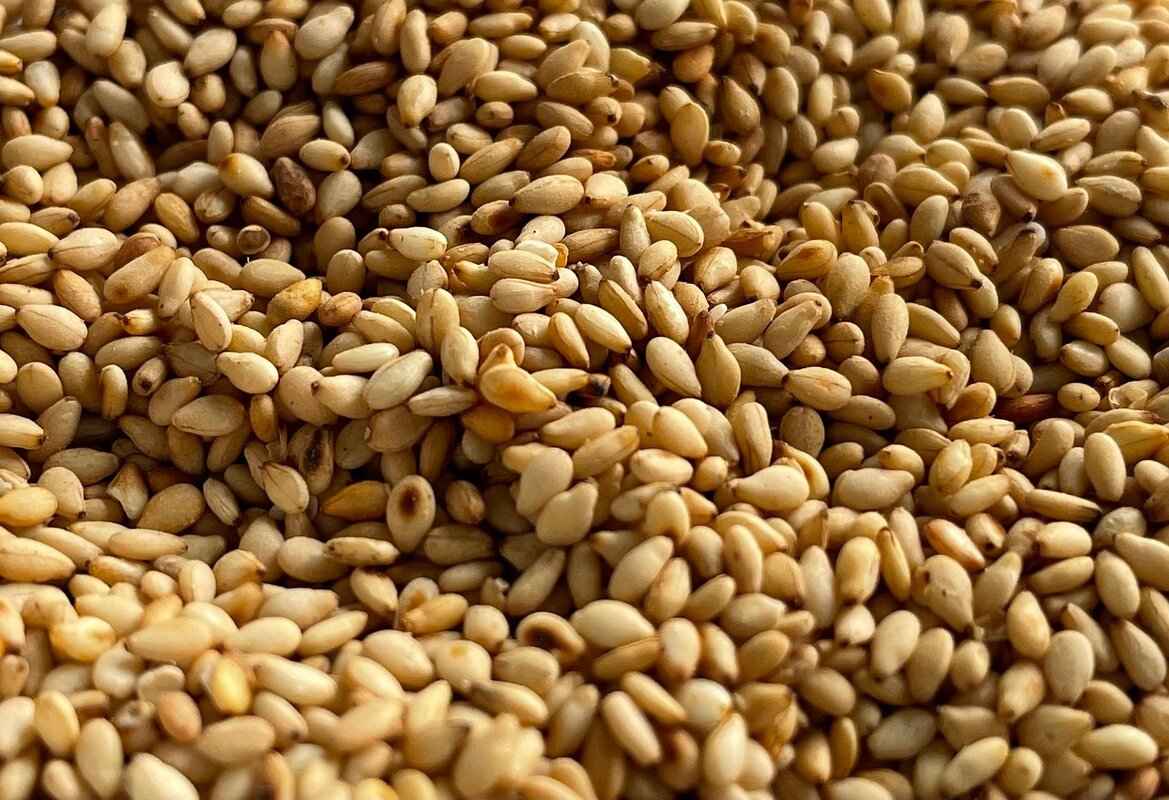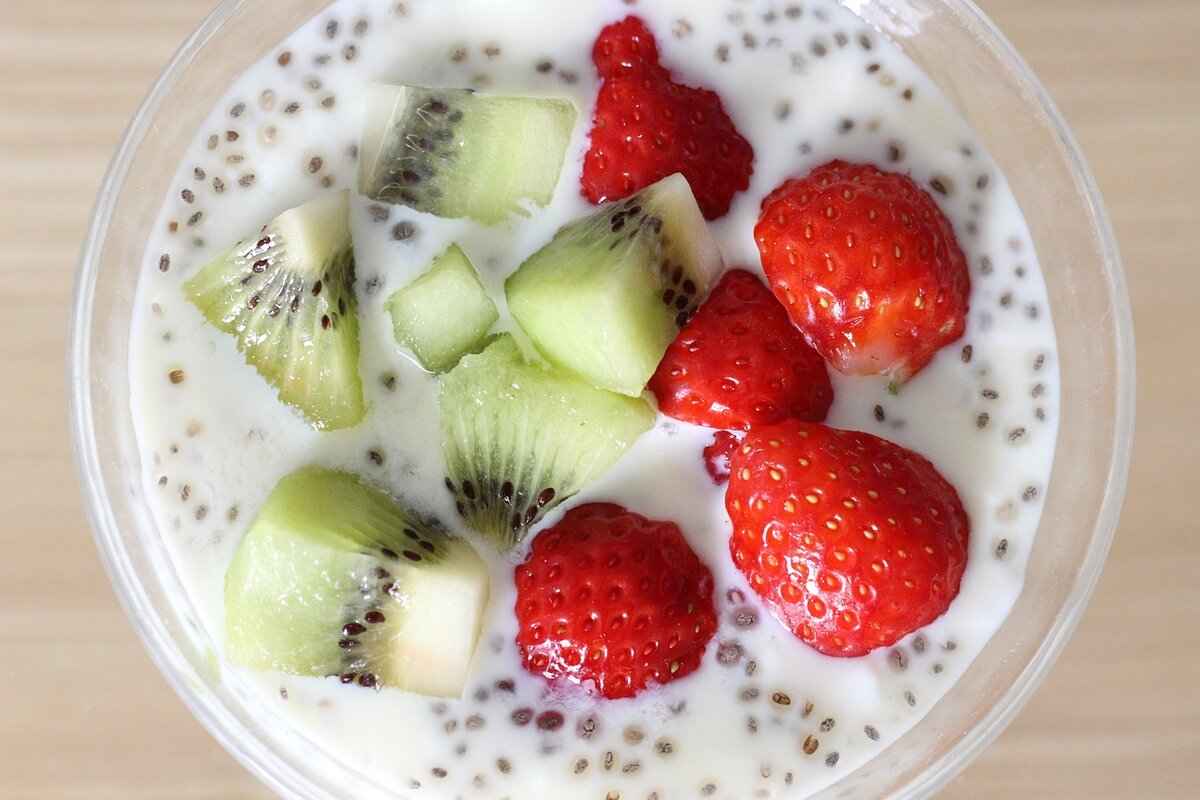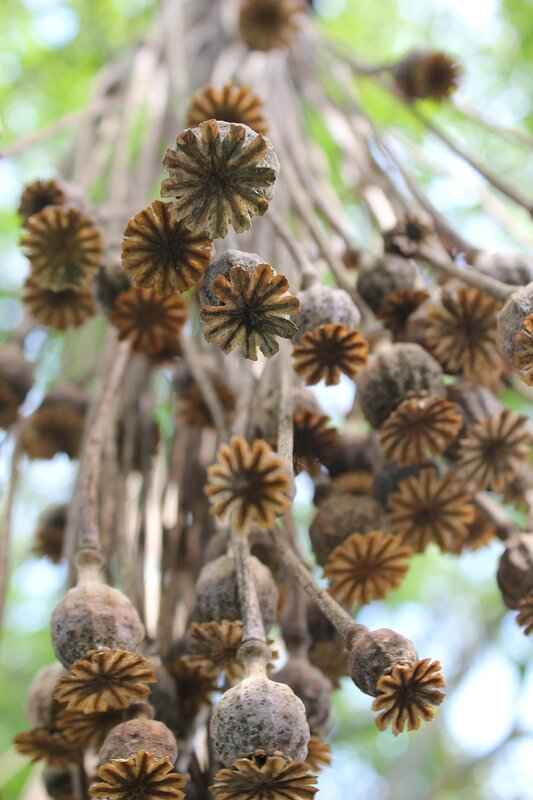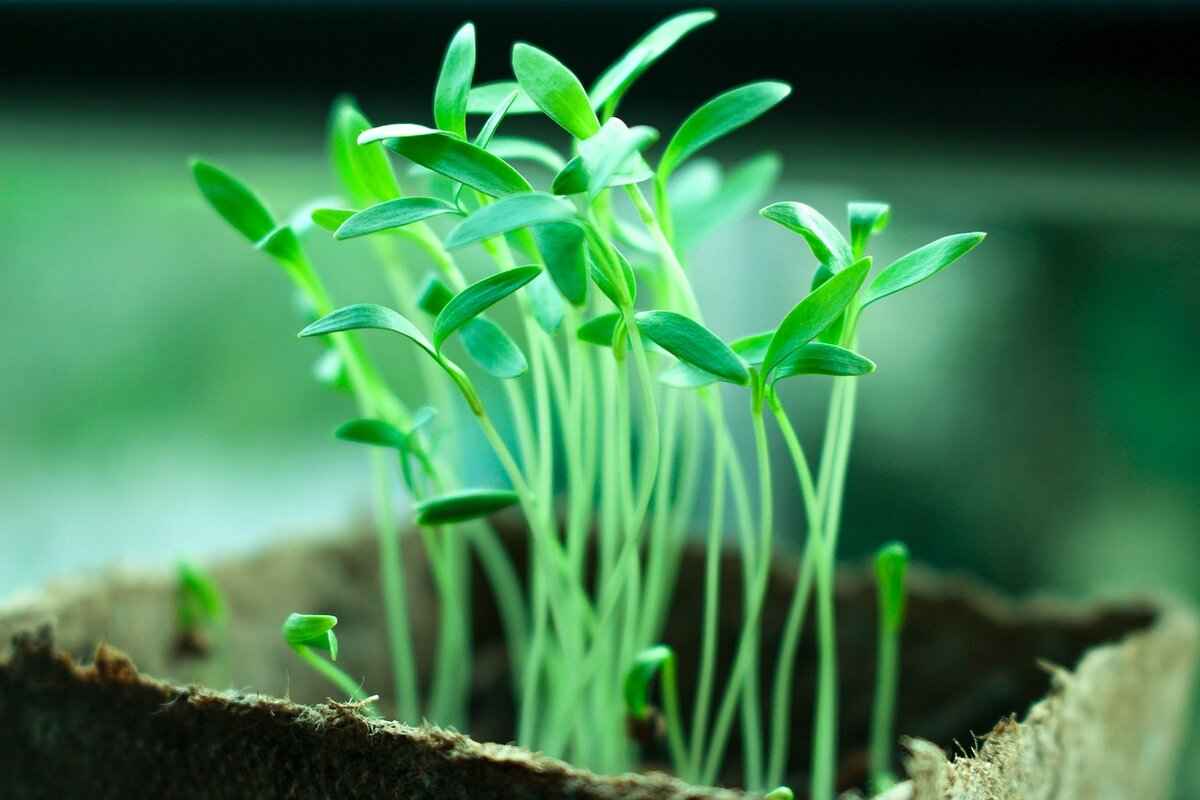Chia seeds have gained immense popularity in the health and wellness community, particularly when soaked in water. This article delves into the myriad benefits of chia seeds, emphasizing their detoxifying properties, nutritional value, and overall enhancement of well-being.
Chia seeds are tiny black seeds from the Salvia hispanica plant, native to Central America. They are celebrated for their impressive nutritional profile, which includes omega-3 fatty acids, protein, fiber, and a variety of vitamins and minerals. These seeds are not only versatile but also pack a powerful health punch.
The detoxifying properties of chia seeds primarily stem from their high fiber content. Fiber plays a crucial role in promoting digestive health and aiding in the elimination of toxins from the body. By helping to cleanse the digestive system, chia seeds contribute to an overall feeling of vitality.
Fiber is essential for maintaining a healthy digestive system. It regulates bowel movements and facilitates the removal of waste. Chia seeds contain both soluble and insoluble fiber, both of which are important for effective detoxification.
- Soluble fiber dissolves in water and forms a gel-like substance, which slows digestion and helps to stabilize blood sugar levels.
- Insoluble fiber adds bulk to stool, promoting regularity and preventing constipation.
Chia seeds are incredibly rich in fiber, containing about 11 grams of fiber per ounce. This makes them an excellent choice for anyone looking to improve their digestive health and support detoxification.
When soaked in water, chia seeds absorb liquid and swell, creating a hydrating gel. This gel not only aids in hydration but also helps to maintain electrolyte balance, which is vital for overall health.
Chia seeds are a powerhouse of nutrients. They are rich in protein, healthy fats, and essential vitamins and minerals, making them a valuable addition to any diet.
Yes, chia seeds are one of the richest plant-based sources of omega-3 fatty acids. These healthy fats are essential for heart health and can help reduce inflammation in the body.
In addition to omega-3s, chia seeds are loaded with calcium, magnesium, and antioxidants, all of which contribute to improved bone health and overall wellness.
Preparing chia seeds in water is straightforward and quick. Here’s how you can make this nutritious detox drink:
A common ratio is 1 tablespoon of chia seeds to 1 cup of water. This ensures optimal hydration and gel formation.
For the best results, soak chia seeds for at least 30 minutes. This allows them to fully absorb the water, enhancing their detoxifying properties and making them easier to digest.
Chia seeds can be beneficial for weight loss due to their high fiber content, which promotes a feeling of fullness. This section explores their role in appetite control and weight management.
The gel-like consistency formed when chia seeds absorb water can help you feel fuller for longer, reducing the likelihood of overeating and aiding in weight management.
Research indicates that incorporating chia seeds into a balanced diet may support weight loss efforts, although individual results can vary based on personal factors.
While chia seeds are generally safe for most people, some individuals may experience digestive discomfort. It’s essential to be aware of potential side effects and considerations.
Individuals with certain health conditions or those who are allergic to chia seeds should consult a healthcare professional before adding them to their diet.
Start with small amounts and gradually increase your intake. This allows your body to adjust to the increased fiber, minimizing the risk of digestive issues.

What Are Chia Seeds?
Chia seeds are tiny black seeds that come from the Salvia hispanica plant, which is native to Central America. These seeds have gained immense popularity due to their remarkable nutritional profile and numerous health benefits. They are particularly known for being an excellent source of omega-3 fatty acids, dietary fiber, and a variety of antioxidants. Their versatility and health-promoting properties make them a valuable addition to any diet.
Chia seeds are often considered a superfood because they are packed with essential nutrients. Here are some key components:
- Omega-3 Fatty Acids: Chia seeds contain about 5 grams of omega-3s per ounce, making them one of the richest plant-based sources of these essential fats, which are crucial for heart health.
- Fiber: With approximately 11 grams of fiber per ounce, chia seeds contribute significantly to daily fiber intake, promoting digestive health and regularity.
- Protein: These seeds are also a good source of protein, containing around 4 grams per ounce, which is beneficial for muscle repair and growth.
- Minerals and Antioxidants: Chia seeds are rich in calcium, magnesium, phosphorus, and various antioxidants that help combat oxidative stress in the body.
The health benefits of chia seeds extend beyond their nutritional content. Here’s how they can enhance well-being:
- Digestive Health: The high fiber content in chia seeds aids digestion. By absorbing water, they form a gel-like substance that helps regulate bowel movements and prevent constipation.
- Weight Management: Chia seeds can promote a feeling of fullness due to their ability to absorb liquid and expand in the stomach, which may help control appetite and reduce overeating.
- Heart Health: The omega-3 fatty acids found in chia seeds can help lower blood pressure, reduce inflammation, and improve cholesterol levels.
Adding chia seeds to your daily routine is easy and can be done in several ways:
- Chia Pudding: Mix chia seeds with your choice of milk or yogurt and let it sit overnight for a delicious breakfast.
- Smoothies: Blend chia seeds into your favorite smoothies for an added nutritional boost.
- Baking: Incorporate chia seeds into baked goods like muffins or bread for enhanced nutrition.
While chia seeds are generally safe for most individuals, some may experience digestive discomfort, particularly if consumed in large quantities. It is advisable to start with small amounts and gradually increase intake to allow your body to adjust to the higher fiber content.
People with certain health conditions, such as those with a history of esophageal or gastrointestinal issues, should consult a healthcare professional before adding chia seeds to their diet. Additionally, individuals allergic to chia seeds should avoid them entirely.
In conclusion, chia seeds are a nutrient-dense food that can significantly contribute to overall health when incorporated into a balanced diet. Their versatility allows them to be easily added to various meals, making them a convenient choice for health-conscious individuals.

How Do Chia Seeds Detoxify the Body?
Chia seeds, often hailed as a superfood, play a significant role in detoxifying the body. Their remarkable high fiber content is one of the key factors that contribute to this process. This section explores how chia seeds work to cleanse the digestive system and promote overall health.
Chia seeds are not only a source of nutrition but also a powerful ally in detoxification. Their high fiber content aids in digestion, which is essential for eliminating toxins from the body. When consumed, chia seeds absorb water and expand, forming a gel-like substance that helps to move waste through the digestive tract efficiently.
Fiber plays a crucial role in maintaining a healthy digestive system. It helps regulate bowel movements and promotes the elimination of waste. Chia seeds contain both soluble and insoluble fiber, which together enhance the detoxification process. Soluble fiber dissolves in water, creating a gel that slows digestion, allowing for better nutrient absorption and toxin removal. Insoluble fiber, on the other hand, adds bulk to stool, promoting regularity and preventing constipation.
- Soluble Fiber: This type of fiber dissolves in water and forms a gel-like consistency. It helps to slow down digestion, which can be beneficial for blood sugar regulation and cholesterol management.
- Insoluble Fiber: This fiber does not dissolve in water and adds bulk to the stool. It aids in moving food through the digestive system, promoting regular bowel movements and preventing digestive issues.
Chia seeds are an excellent source of fiber, containing about 11 grams of fiber per ounce. This high fiber content makes them an ideal choice for those looking to improve their digestive health and support detoxification. Regular consumption can lead to better bowel health and a more efficient elimination of toxins.
When chia seeds are soaked in water, they absorb liquid and swell, forming a hydrating gel. This gel not only aids in hydration but also supports digestive health by making it easier for the body to process and eliminate waste. Staying hydrated is crucial during detoxification, as it helps the body function optimally and flush out toxins effectively.
In addition to their detoxifying properties, chia seeds can aid in weight loss. Their high fiber content promotes a feeling of fullness, which can help control appetite and reduce overall calorie intake. This makes chia seeds a valuable addition to a weight management plan.
While chia seeds are generally safe for most individuals, some may experience digestive discomfort, especially if consumed in large quantities. It is advisable to start with small amounts and gradually increase intake, allowing the body to adjust to the increased fiber.
In summary, chia seeds are a powerful tool for detoxification due to their high fiber content and hydrating properties. By incorporating them into your diet, you can support your digestive health and enhance your body’s natural detoxification processes.
What Is the Role of Fiber in Detoxification?
Fiber plays a vital role in maintaining a healthy digestive system and is essential for effective detoxification. It helps to regulate bowel movements and facilitates the removal of waste from the body. Among the various sources of fiber, chia seeds stand out due to their unique combination of soluble and insoluble fiber, which enhances the body’s detox processes.
Fiber is not just a filler in our diets; it is a powerhouse for digestive health. It aids in cleansing the digestive tract by binding to toxins and waste products, making it easier for the body to eliminate them. When you consume foods high in fiber, such as chia seeds, you are essentially giving your body the tools it needs to detoxify efficiently.
Soluble fiber, which dissolves in water, forms a gel-like substance in the digestive system. This gel slows down digestion, allowing for better absorption of nutrients and helping to regulate blood sugar levels. Additionally, it helps to trap toxins and cholesterol, facilitating their excretion. Chia seeds are an excellent source of soluble fiber, making them a great choice for those looking to enhance their detoxification efforts.
In contrast, insoluble fiber adds bulk to stool and promotes regular bowel movements. This type of fiber is crucial for preventing constipation and ensuring that waste is expelled from the body in a timely manner. By incorporating chia seeds into your diet, you can benefit from both types of fiber, supporting a well-rounded approach to detoxification.
Chia seeds are incredibly nutrient-dense, providing approximately 11 grams of fiber per ounce. This high fiber content makes them one of the most effective foods for improving digestive health and supporting the detoxification process. Regular consumption of chia seeds can help maintain a healthy gut and promote overall well-being.
When chia seeds are soaked in water, they absorb liquid and expand, creating a gel-like consistency. This not only aids in hydration but also enhances the seeds’ detoxifying properties. The gel helps to keep you feeling full, which can prevent overeating and support weight management, another important aspect of detoxification.
- Add to Smoothies: Blend chia seeds into your favorite smoothies for an added fiber boost.
- Make Chia Pudding: Soak chia seeds overnight in almond milk or coconut milk for a nutritious breakfast.
- Sprinkle on Salads: Enhance the fiber content of your salads by sprinkling chia seeds on top.
In summary, the role of fiber in detoxification cannot be overstated. Chia seeds, with their high content of both soluble and insoluble fiber, provide a comprehensive approach to supporting digestive health and enhancing the body’s natural detox processes. By incorporating chia seeds into your daily diet, you can take significant steps towards a healthier, more balanced lifestyle.
Soluble vs. Insoluble Fiber: What’s the Difference?
Understanding the Different Types of Fiber is essential for maintaining a healthy diet and promoting overall wellness. Among the various types of dietary fiber, soluble and insoluble fiber play significant roles in our digestive health. Each type has unique characteristics and benefits that contribute to bodily functions, particularly in detoxification processes.
Soluble fiber is a type of fiber that dissolves in water, forming a gel-like substance. This gel slows down the digestive process, which can help regulate blood sugar levels and lower cholesterol. Foods rich in soluble fiber include oats, beans, lentils, apples, and chia seeds. By slowing digestion, soluble fiber allows for better nutrient absorption and can help you feel fuller for a longer time.
In contrast, insoluble fiber does not dissolve in water and is crucial for adding bulk to stool. This type of fiber helps food pass more quickly through the stomach and intestines, promoting regular bowel movements. Sources of insoluble fiber include whole grains, nuts, seeds, and the skins of many fruits and vegetables. By aiding in the movement of food through the digestive tract, insoluble fiber plays a vital role in preventing constipation and maintaining digestive health.
Both soluble and insoluble fiber are essential for detoxification. Soluble fiber helps to trap toxins and waste in the digestive tract, allowing for their gradual removal. This process not only cleanses the digestive system but also supports liver function. On the other hand, insoluble fiber helps to bulk up stool, ensuring that waste is expelled efficiently and regularly. Together, these fibers create a balanced digestive environment that is crucial for detoxification.
Incorporating both soluble and insoluble fiber into your diet can lead to numerous health benefits. These include:
- Improved Digestion: Regular intake of fiber can prevent constipation and promote a healthy digestive tract.
- Weight Management: High-fiber foods can increase feelings of fullness, potentially leading to reduced calorie intake.
- Heart Health: Soluble fiber can help lower cholesterol levels, reducing the risk of heart disease.
- Blood Sugar Control: Soluble fiber slows the absorption of sugar, helping to maintain stable blood sugar levels.
The recommended daily intake of fiber varies by age and gender, but generally, adults should aim for about 25 grams for women and 38 grams for men. However, most people only consume about half of this amount. To increase your fiber intake, consider incorporating more fruits, vegetables, whole grains, and legumes into your meals.
Here are some practical tips for adding more fiber to your diet:
- Start Slowly: Gradually increase fiber intake to avoid digestive discomfort.
- Choose Whole Grains: Opt for whole grain bread, pasta, and cereals instead of refined grains.
- Snack on Fruits and Veggies: Keep fresh fruits and vegetables on hand for healthy snacking.
- Add Legumes: Incorporate beans, lentils, and chickpeas into salads, soups, and stews.
Understanding the differences between soluble and insoluble fiber can empower you to make better dietary choices that support your health and detoxification processes. By embracing a fiber-rich diet, you can enhance your overall well-being and promote a healthier lifestyle.
How Much Fiber Do Chia Seeds Contain?
Chia seeds have gained immense popularity in recent years, and for good reason. One of their most remarkable attributes is their high fiber content. In fact, chia seeds contain approximately 11 grams of fiber per ounce, making them an exceptional choice for those looking to enhance their digestive health and support detoxification processes in the body.
Fiber plays a crucial role in maintaining a healthy digestive system. It helps regulate bowel movements, prevents constipation, and promotes the growth of beneficial gut bacteria. By incorporating high-fiber foods like chia seeds into your diet, you can significantly improve your digestive health.
The detoxification process is vital for eliminating toxins and waste from the body. Chia seeds, with their impressive fiber content, facilitate this process by:
- Aiding digestion: The fiber in chia seeds helps to bulk up stool and encourages regular bowel movements.
- Absorbing toxins: Fiber can bind to toxins in the digestive tract, helping to eliminate them from the body.
- Promoting gut health: A healthy gut is essential for effective detoxification, and chia seeds contribute to a balanced gut microbiome.
Chia seeds provide both soluble and insoluble fiber. Understanding the difference between these two types can help you appreciate their benefits:
| Type of Fiber | Benefits |
|---|---|
| Soluble Fiber | Dissolves in water to form a gel-like substance, which slows digestion and helps regulate blood sugar levels. |
| Insoluble Fiber | Adds bulk to stool and aids in moving food through the digestive system, promoting regularity. |
Adding chia seeds to your diet is simple and versatile. Here are some practical ways to enjoy their benefits:
- Add them to smoothies for an extra fiber boost.
- Mix chia seeds into yogurt or oatmeal for a nutritious breakfast.
- Use them as an egg substitute in baking by mixing chia seeds with water.
While chia seeds are generally safe for most individuals, it’s essential to consume them in moderation. Due to their high fiber content, consuming large amounts suddenly can lead to digestive discomfort. It’s advisable to start with a small portion and gradually increase your intake.
In summary, chia seeds are a powerhouse of nutrition, offering approximately 11 grams of fiber per ounce. They are beneficial for digestive health and detoxification, making them an excellent addition to a balanced diet. By understanding the types of fiber they provide and incorporating them into your meals, you can enhance your overall well-being.
How Do Chia Seeds Hydrate the Body?
Chia seeds have gained immense popularity in recent years, not just for their nutritional benefits but also for their unique ability to hydrate the body. When soaked in water, these tiny seeds expand significantly, creating a gel-like substance that is not only versatile but also beneficial for maintaining hydration levels.
When chia seeds are soaked in water, they can absorb up to 12 times their weight in liquid. This process creates a hydrating gel that serves multiple purposes. The gel not only aids in hydration but also helps to slow down the digestive process, allowing for a gradual release of energy and nutrients into the bloodstream.
Unlike many other seeds and grains, chia seeds contain a high amount of soluble fiber, which is essential for hydration. This soluble fiber forms a gel when it comes in contact with water, making chia seeds an excellent option for those looking to increase their fluid intake. The unique structure of this gel helps to keep you feeling full and satisfied, making it an ideal addition to meals or snacks.
The hydration benefits of chia seeds extend beyond mere water absorption. The gel created by soaking chia seeds can help in:
- Regulating blood sugar levels: By slowing digestion, chia seeds can help maintain stable blood sugar levels, reducing the risk of spikes and crashes.
- Improving digestion: The gel-like consistency aids in moving food through the digestive tract, promoting regular bowel movements.
- Enhancing nutrient absorption: The slow release of nutrients allows your body to absorb vitamins and minerals more efficiently.
To maximize the hydrating benefits of chia seeds, follow these simple steps:
1. Measure 1 tablespoon of chia seeds.2. Add 1 cup of water (or your preferred liquid).3. Stir well to prevent clumping.4. Let the mixture sit for at least 30 minutes, or until the seeds have absorbed the liquid and formed a gel.5. Enjoy as a drink, added to smoothies, or incorporated into various recipes.
Soaking chia seeds not only enhances their hydration properties but also makes them easier to digest. When seeds are soaked, they begin to break down, which can help your body absorb nutrients more effectively. Additionally, the gel formed can be used as a natural thickening agent in various culinary applications, from puddings to sauces.
The gel-like consistency of soaked chia seeds can also aid in weight management. By promoting a sense of fullness, they can help curb appetite and reduce the likelihood of overeating. This makes them a valuable addition to any weight loss plan.
While chia seeds are generally safe for most individuals, it’s essential to consume them in moderation. Some people may experience digestive discomfort if they consume large quantities without adequate hydration. Always ensure that you drink plenty of water when incorporating chia seeds into your diet.
In conclusion, soaking chia seeds in water is an effective way to enhance hydration and support overall health. Their unique properties and versatility make them a valuable addition to any diet, offering numerous benefits that go beyond hydration.

What Are the Nutritional Benefits of Chia Seeds?
Chia seeds have gained immense popularity in the health and wellness community, primarily due to their dense nutritional profile and numerous health benefits. These tiny seeds, which come from the Salvia hispanica plant, are not only versatile but also incredibly nutritious. This section will delve into the various nutritional benefits of chia seeds, emphasizing their role in promoting overall health and well-being.
Chia seeds are a powerhouse of essential nutrients. They are particularly known for being high in:
- Protein: Chia seeds contain about 4 grams of protein per ounce, making them an excellent plant-based protein source.
- Healthy Fats: They are rich in omega-3 fatty acids, which are crucial for heart health.
- Fiber: With approximately 11 grams of fiber per ounce, they support digestive health and help maintain a feeling of fullness.
- Vitamins and Minerals: Chia seeds are loaded with calcium, magnesium, phosphorus, and several B vitamins.
The high fiber content in chia seeds plays a vital role in promoting digestive health. The soluble fiber in chia seeds forms a gel-like substance when mixed with water, which can help:
- Regulate bowel movements.
- Prevent constipation by adding bulk to the stool.
- Enhance the absorption of nutrients.
Yes, chia seeds are an excellent source of omega-3 fatty acids, particularly alpha-linolenic acid (ALA). These healthy fats contribute to:
- Reducing inflammation in the body.
- Lowering cholesterol levels.
- Improving overall heart health.
Incorporating chia seeds into your diet can be a simple yet effective way to support cardiovascular health.
Chia seeds are also rich in antioxidants, which help combat oxidative stress in the body. Antioxidants are essential for:
- Neutralizing free radicals.
- Reducing the risk of chronic diseases.
- Promoting healthy aging.
The combination of protein, fiber, and healthy fats in chia seeds can be beneficial for weight management. By promoting a feeling of fullness, they can help control appetite and reduce overall caloric intake. Studies suggest that including chia seeds in a balanced diet may support weight loss efforts.
Incorporating chia seeds into your daily routine is simple. Here are a few practical ideas:
- Add them to smoothies for an extra nutrient boost.
- Sprinkle on salads or yogurt for added texture and nutrition.
- Use chia seeds as an egg substitute in baking by mixing them with water.
In summary, chia seeds are a nutrient-dense superfood that can significantly enhance your diet. With their impressive profile of proteins, healthy fats, and essential vitamins and minerals, they offer a multitude of health benefits ranging from improved digestion to enhanced heart health. By incorporating chia seeds into your meals, you can enjoy their numerous advantages and support your overall wellness.
Are Chia Seeds a Good Source of Omega-3 Fatty Acids?
Chia seeds have gained immense popularity in recent years, not only for their unique texture but also for their impressive nutritional profile. Among their many health benefits, one of the standout features of chia seeds is their remarkable content of omega-3 fatty acids. In this section, we will delve deeper into why these tiny seeds are considered one of the richest plant-based sources of omega-3s and how they contribute to overall health.
Omega-3 fatty acids are essential fats that the body cannot produce on its own, making it necessary to obtain them through diet. These fatty acids play a crucial role in maintaining heart health, supporting brain function, and reducing inflammation throughout the body. The three main types of omega-3 fatty acids include:
- ALA (Alpha-linolenic acid): Found primarily in plant sources.
- EPA (Eicosapentaenoic acid): Found in fish and algae.
- DHA (Docosahexaenoic acid): Also found in fish and algae, important for brain health.
Chia seeds are particularly rich in ALA, with approximately 5 grams of ALA per ounce. This makes them an excellent choice for those following a vegetarian or vegan diet, as they provide a plant-based alternative to fish oils. Consuming ALA is essential for maintaining optimal health, as it has been linked to several health benefits, including:
- Improved heart health by lowering cholesterol levels.
- Reduced inflammation, which can alleviate symptoms of chronic diseases.
- Enhanced brain function, potentially lowering the risk of cognitive decline.
Research has shown that omega-3 fatty acids can significantly contribute to heart health. They help reduce triglyceride levels, lower blood pressure, and decrease the risk of arrhythmias. By incorporating chia seeds into your diet, you can harness these benefits naturally. The high fiber content of chia seeds also aids in maintaining healthy cholesterol levels, further supporting cardiovascular health.
Chronic inflammation is a contributing factor to many health issues, including heart disease, diabetes, and arthritis. The omega-3 fatty acids found in chia seeds have been shown to have anti-inflammatory properties. Regular consumption of chia seeds can help mitigate inflammation in the body, promoting overall wellness and reducing the risk of chronic diseases.
Incorporating chia seeds into your diet is simple and versatile. Here are some practical ways to enjoy their omega-3 benefits:
- Add chia seeds to smoothies for an extra nutritional boost.
- Mix them into yogurt or oatmeal for added texture and health benefits.
- Use chia seeds as a thickening agent in soups and sauces.
- Prepare chia pudding by soaking them in milk or a milk alternative overnight.
In conclusion, chia seeds are an excellent source of omega-3 fatty acids, particularly ALA, making them a valuable addition to any diet. Their numerous health benefits, including heart health support and anti-inflammatory properties, demonstrate why these tiny seeds deserve a prominent place in our meals. By incorporating chia seeds into your daily routine, you can take a significant step towards improving your overall health and well-being.
What Other Nutrients Are Found in Chia Seeds?
Chia seeds, often hailed as a superfood, offer a plethora of nutrients that contribute significantly to health and wellness. In addition to their well-known omega-3 fatty acids, these tiny seeds are a powerhouse of essential minerals and antioxidants that play a crucial role in maintaining overall health.
Chia seeds are an excellent source of calcium, providing about 18% of the recommended daily intake in just one ounce. This mineral is vital for maintaining strong bones and teeth. Calcium also plays a crucial role in muscle function, nerve signaling, and cardiovascular health. Regular consumption of chia seeds can help meet your calcium needs, especially for those who follow a plant-based diet.
Another essential nutrient found in chia seeds is magnesium, which is involved in over 300 biochemical reactions in the body. This mineral is crucial for energy production, muscle contraction, and the synthesis of DNA and protein. With approximately 24% of the daily recommended intake per ounce, chia seeds can be a significant contributor to your magnesium levels, promoting muscle and nerve function, as well as reducing inflammation.
Chia seeds are also rich in antioxidants, which help combat oxidative stress and inflammation in the body. Antioxidants play a critical role in protecting cells from damage caused by free radicals. The presence of these compounds in chia seeds not only contributes to overall wellness but can also aid in the prevention of chronic diseases, including heart disease and cancer.
While discussing the nutritional profile of chia seeds, one cannot overlook their impressive fiber content. With about 11 grams of fiber per ounce, chia seeds are an excellent source of both soluble and insoluble fiber. This fiber aids in digestion, helps maintain a healthy weight, and can lower cholesterol levels. The gel-like consistency of soaked chia seeds can also promote a feeling of fullness, making them a great addition to weight loss diets.
Chia seeds are a fantastic source of plant-based protein, containing about 4 grams per ounce. This makes them an excellent option for vegetarians and vegans looking to increase their protein intake. Protein is essential for muscle repair, immune function, and hormone production. Including chia seeds in your diet can help ensure you meet your protein needs while enjoying a versatile ingredient.
- Add to Smoothies: Blend chia seeds into your favorite smoothie for added nutrition.
- Top Your Yogurt: Sprinkle chia seeds on yogurt or oatmeal for a crunchy texture.
- Baking: Incorporate chia seeds into your baked goods, such as muffins and bread.
- Make Chia Pudding: Soak chia seeds in milk or a dairy-free alternative to create a delicious pudding.
In summary, chia seeds are not just a source of omega-3 fatty acids; they are a rich source of calcium, magnesium, antioxidants, fiber, and protein. Incorporating these tiny seeds into your diet can significantly enhance your nutritional intake, supporting bone health, digestion, and overall wellness.

How to Prepare Chia Seeds in Water?
Chia seeds have gained popularity as a superfood due to their numerous health benefits. One of the simplest and most effective ways to consume these tiny seeds is by preparing them in water. This method not only enhances their nutritional value but also makes them easier to digest. Below, we provide detailed instructions on how to prepare chia seeds in water, ensuring you can enjoy this nutritious detox drink.
Preparing chia seeds in water is straightforward and requires minimal effort. Follow these step-by-step instructions to create a delicious and nutritious drink:
- Gather Your Ingredients: You will need chia seeds and water. A common ratio is 1 tablespoon of chia seeds to 1 cup of water.
- Combine Ingredients: In a bowl or jar, mix the chia seeds with the water. Stir well to ensure that the seeds are evenly distributed.
- Let Them Soak: Allow the mixture to sit for at least 30 minutes. This soaking time is crucial as it allows the chia seeds to absorb the water and expand, forming a gel-like consistency.
- Stir Again: After soaking, give the mixture another stir to break up any clumps that may have formed. This ensures a smooth texture.
- Enjoy Your Drink: Your chia seed drink is now ready! You can consume it plain or add flavors such as lemon juice, honey, or fruit for added taste.
Soaking chia seeds in water offers several benefits:
- Enhanced Nutritional Absorption: Soaking helps to unlock the nutrients within chia seeds, making them more bioavailable.
- Improved Digestion: The gel-like texture aids in digestion and helps to regulate bowel movements.
- Hydration: Chia seeds can absorb up to 10-12 times their weight in water, providing a hydrating boost.
The ideal soaking time for chia seeds is at least 30 minutes. However, for optimal results, you can soak them overnight in the refrigerator. This ensures they are fully hydrated and ready for consumption the next day.
Yes, you can prepare chia seeds in advance. Once soaked, they can be stored in the refrigerator for up to 5 days. Just make sure to keep them in an airtight container to maintain freshness.
In addition to consuming chia seeds in water, there are various ways to include them in your diet:
- Add them to smoothies for a nutritional boost.
- Mix with yogurt or oatmeal for added texture and fiber.
- Use as an egg substitute in baking by mixing chia seeds with water.
By preparing chia seeds in water, you not only create a versatile detox drink but also unlock their numerous health benefits. Enjoy this simple yet effective way to improve your overall well-being!
What Is the Ideal Ratio of Chia Seeds to Water?
When it comes to incorporating chia seeds into your diet, understanding the ideal ratio of chia seeds to water is essential for maximizing their health benefits. Chia seeds are renowned for their remarkable ability to absorb liquid, which is why the correct ratio is crucial for achieving the desired texture and nutritional value.
The recommended ratio for preparing chia seeds in water is typically 1 tablespoon of chia seeds to 1 cup of water. This specific measurement ensures that the seeds can properly hydrate and form a gel-like consistency. This gel formation is vital, as it enhances the seeds’ detoxifying properties and makes them easier to digest.
Maintaining the right ratio is not just about texture; it significantly impacts the nutritional benefits of chia seeds. When chia seeds are mixed with water in the correct proportions, they can:
- Enhance Hydration: Chia seeds can absorb up to 12 times their weight in water, helping to keep you hydrated.
- Improve Digestive Health: The gel-like substance formed aids in digestion and helps in the elimination of toxins from the body.
- Promote Satiety: The gel expands in your stomach, helping you feel fuller for longer and potentially aiding in weight management.
Preparing chia seeds in water is a straightforward process:
- Measure: Use 1 tablespoon of chia seeds for every 1 cup of water.
- Mix: Combine the seeds and water in a bowl or jar, stirring well to prevent clumping.
- Soak: Allow the mixture to sit for at least 30 minutes. For optimal results, you can soak them overnight.
While the standard ratio is effective, some individuals may prefer a different consistency. If you enjoy a thicker gel, you can increase the amount of chia seeds, while adding more water will yield a thinner mixture. Experimenting with the ratio can lead to a texture that suits your personal preference.
Soaking chia seeds not only enhances their texture but also boosts their health benefits:
- Nutrient Absorption: Soaked chia seeds may be easier for your body to digest, allowing for better absorption of nutrients.
- Hydration: The gel formed from soaking helps maintain hydration, especially during hot weather or after exercise.
- Versatility: Soaked chia seeds can be added to smoothies, salads, or used as a topping for yogurt and oatmeal.
Incorporating chia seeds into your diet can be a simple yet effective way to enhance your overall health. By adhering to the ideal ratio of 1 tablespoon of chia seeds to 1 cup of water, you can enjoy the full range of benefits these tiny seeds have to offer. Whether you are looking to detoxify, hydrate, or manage your weight, chia seeds are a nutritious addition to any meal.
How Long Should You Soak Chia Seeds?
Soaking chia seeds is a crucial step that enhances their health benefits and makes them more palatable. Chia seeds, known for their remarkable nutritional profile, need to be soaked for an optimal duration to unlock their full potential.
When you soak chia seeds in water, they absorb liquid and expand, forming a gel-like consistency. This process not only enhances their detoxifying properties but also makes them easier to digest. By soaking them for at least 30 minutes, you allow the seeds to fully hydrate, which is essential for maximizing their health benefits.
During the soaking process, chia seeds can absorb up to 10-12 times their weight in water. This gel formation is beneficial for several reasons:
- Improved Digestion: The gel helps to slow down digestion, allowing for better nutrient absorption.
- Enhanced Detoxification: The fiber content in chia seeds binds to toxins in the digestive tract, aiding in their elimination.
- Hydration: The water absorbed by the seeds contributes to overall hydration, which is vital for bodily functions.
To prepare chia seeds for consumption, follow these simple steps:
1. Measure out 1 tablespoon of chia seeds.2. Add the seeds to 1 cup of water or your favorite liquid.3. Stir well to prevent clumping.4. Let the mixture sit for at least 30 minutes, or until it reaches a gel-like consistency.5. Stir again before consuming to ensure even distribution.
Yes, soaking chia seeds overnight is a great option if you want to prepare them in advance. This method allows for even greater hydration and can enhance their nutritional benefits. Just remember to store them in the refrigerator to maintain freshness.
Incorporating soaked chia seeds into your diet is easy and versatile. You can add them to:
- Smoothies
- Yogurt or oatmeal
- Baked goods
- Salads for an added crunch
By including soaked chia seeds in your meals, you not only enhance your nutritional intake but also promote better digestive health.
While chia seeds are generally safe for most individuals, it’s essential to be mindful of portion sizes. Consuming too many chia seeds without adequate hydration can lead to digestive discomfort. Start with small amounts and increase gradually as your body adjusts.
In conclusion, soaking chia seeds for at least 30 minutes is a vital step in reaping their numerous health benefits. By allowing these tiny seeds to absorb water, you enhance their detoxifying properties and make them easier to digest, paving the way for improved overall health.

Can Chia Seeds Help with Weight Loss?
Chia seeds have gained popularity in the health and wellness community, particularly for their potential role in weight loss. These tiny seeds, when consumed, can significantly contribute to appetite control and overall weight management due to their remarkable fiber content. This section delves into how chia seeds can assist in weight loss and the mechanisms behind their effectiveness.
One of the primary reasons chia seeds are effective for weight loss is their ability to absorb liquid and expand in the stomach. When chia seeds are soaked in water, they can absorb up to 12 times their weight, forming a gel-like substance. This gel not only slows digestion but also creates a sense of fullness, reducing the likelihood of overeating.
Chia seeds are packed with dietary fiber, containing about 11 grams of fiber per ounce. This high fiber content plays a critical role in weight management by:
- Enhancing satiety: Fiber slows the digestion process, leading to prolonged feelings of fullness.
- Regulating blood sugar levels: Consuming fiber-rich foods can help stabilize blood sugar, preventing spikes that can lead to cravings.
- Promoting healthy digestion: Adequate fiber intake is essential for proper bowel function, which can aid in weight loss.
The gel-like consistency formed when chia seeds absorb water can help in curbing cravings. This effect can be particularly beneficial for those who struggle with late-night snacking or emotional eating. By incorporating chia seeds into meals or snacks, individuals may find it easier to resist unhealthy food options.
Research on chia seeds and weight loss is still evolving. Some studies suggest that incorporating chia seeds into a balanced diet may support weight loss efforts. For instance, a study published in the Journal of Nutrition indicated that participants who consumed chia seeds experienced a reduction in body mass index (BMI) and waist circumference. However, results can vary based on individual metabolism and lifestyle factors.
Incorporating chia seeds into your diet is simple and versatile. Here are a few practical ways to do so:
- Add chia seeds to smoothies for a nutritional boost.
- Mix them into yogurt or oatmeal for added texture and fiber.
- Use chia seeds in baking as a substitute for eggs or flour.
- Prepare chia pudding by soaking them in milk or a milk alternative overnight.
For weight loss, a typical serving size of chia seeds is about 1 to 2 tablespoons per day. It’s essential to start with smaller amounts, especially for those new to high-fiber foods, to allow the digestive system to adjust.
While chia seeds are generally safe for most people, some may experience digestive discomfort, such as bloating or gas, especially if consumed in large quantities. It’s advisable to drink plenty of water when increasing fiber intake to minimize these effects. Individuals with certain health conditions or allergies should consult a healthcare professional before adding chia seeds to their diet.
In summary, chia seeds can be a valuable addition to a weight loss regimen due to their ability to promote feelings of fullness, regulate appetite, and provide essential nutrients. By understanding their benefits and incorporating them wisely, individuals can enhance their weight management efforts effectively.
How Do Chia Seeds Curb Appetite?
Chia seeds have gained popularity as a superfood, particularly for their ability to assist with weight management. One of the most significant benefits of these tiny seeds is their capacity to curb appetite effectively. This section delves into the mechanisms through which chia seeds help control hunger and promote a feeling of fullness.
When chia seeds are soaked in water, they absorb the liquid and swell, forming a gel-like consistency. This transformation is due to their high soluble fiber content, which can absorb up to 12 times its weight in water. This gel-like substance plays a crucial role in appetite regulation.
The gel formed by chia seeds slows down the digestion process. When consumed, this gel expands in the stomach, creating a sensation of fullness that can last for several hours. This prolonged feeling of satiety can significantly reduce the urge to snack between meals, thereby minimizing calorie intake.
Chia seeds are rich in both soluble and insoluble fiber. The soluble fiber, when mixed with water, forms the aforementioned gel, while the insoluble fiber adds bulk to the digestive system. Together, they contribute to a healthy digestive tract and enhance feelings of fullness. A single ounce of chia seeds contains about 11 grams of fiber, which is a substantial amount that can aid in weight management.
Incorporating chia seeds into a balanced diet can lead to sustainable weight loss. Studies have shown that individuals who consume chia seeds regularly may experience reduced cravings and lower overall calorie consumption. This effect is particularly beneficial for those looking to manage their weight over the long term.
- Chia Seed Pudding: Mix chia seeds with almond milk and let it sit overnight. Add fruits for flavor.
- In Smoothies: Blend chia seeds into your favorite smoothie for added thickness and satiety.
- As a Topping: Sprinkle chia seeds on salads or yogurt to enhance texture and nutritional value.
Research suggests that chia seeds may help in appetite control and weight loss. A study published in the Journal of Nutrition indicated that participants who consumed chia seeds reported feeling less hungry and had lower levels of hunger hormones. However, individual responses can vary, and it’s essential to incorporate chia seeds as part of a balanced diet.
While chia seeds can be an effective tool for appetite control, moderation is key. Starting with a small amount, such as one tablespoon, and gradually increasing your intake can help prevent digestive discomfort. Additionally, drinking plenty of water is crucial when consuming chia seeds to aid in digestion and maximize their benefits.
In conclusion, chia seeds offer a natural and effective way to curb appetite and support weight management. Their unique gel-like consistency, combined with high fiber content, makes them a valuable addition to any diet aimed at promoting satiety and reducing overeating.
Are There Any Studies Supporting Chia Seeds for Weight Loss?
Chia seeds have gained significant popularity in recent years, particularly among health enthusiasts and those seeking to manage their weight. As a nutrient-dense superfood, these tiny seeds are often touted for their potential benefits in weight loss. However, the question remains:
Several studies have explored the impact of chia seeds on weight management. One notable study published in the Journal of Nutrition found that participants who included chia seeds in their diet experienced a significant reduction in body weight and waist circumference compared to those who did not. The high fiber content in chia seeds plays a crucial role in this effect.
Chia seeds are rich in soluble fiber, which absorbs water and expands in the stomach, creating a feeling of fullness. This satiating effect can help reduce overall calorie intake. A study conducted by the University of Toronto indicated that participants who consumed chia seeds reported feeling less hungry and were less likely to snack between meals.
The gel-like consistency formed when chia seeds are soaked in water slows down digestion, which can help maintain stable blood sugar levels. This stabilization is essential for preventing spikes in hunger. Furthermore, the omega-3 fatty acids found in chia seeds have been linked to improved metabolic health, which can further support weight loss efforts.
While many studies suggest that chia seeds can aid in weight loss, it’s important to note that individual results may vary. Factors such as overall diet, physical activity levels, and metabolic rates play a significant role in determining weight loss success. Some individuals may find chia seeds to be a beneficial addition to their diet, while others may not experience the same results.
For those interested in incorporating chia seeds into their weight loss regimen, there are several ways to do so:
- Add to Smoothies: Blend chia seeds into your morning smoothie for an added nutrient boost.
- Use as a Topping: Sprinkle chia seeds on yogurt or oatmeal for added texture and nutrition.
- Make Chia Pudding: Combine chia seeds with almond milk and let them soak overnight for a delicious pudding.
While chia seeds are generally safe for most individuals, consuming them in excessive amounts may lead to digestive discomfort, including bloating and gas. It is advisable to start with a small serving and gradually increase intake to allow the body to adjust to the increased fiber.
Before making significant changes to your diet, especially if you have underlying health conditions, it is wise to consult with a healthcare professional. They can provide personalized advice based on your individual health needs and weight loss goals.
In summary, while research indicates that incorporating chia seeds into a balanced diet may support weight loss efforts, individual results can vary. The combination of high fiber content, omega-3 fatty acids, and their unique gel-forming properties makes chia seeds a valuable addition to a weight loss plan. However, as with any dietary change, moderation and a holistic approach to health are key.

Are There Any Risks or Side Effects of Consuming Chia Seeds?
Chia seeds have gained immense popularity due to their numerous health benefits, but it’s crucial to understand that, like any food, they may not be suitable for everyone. This section explores the potential risks and side effects associated with consuming chia seeds, ensuring that you can make informed dietary choices.
While chia seeds are generally regarded as safe and nutritious, some individuals may experience digestive discomfort when incorporating them into their diets. This discomfort can manifest as bloating, gas, or even diarrhea, particularly if chia seeds are consumed in excessive amounts or without sufficient hydration.
- High Fiber Content: Chia seeds are rich in fiber, with about 11 grams per ounce. For those not accustomed to a high-fiber diet, a sudden increase in fiber intake can lead to digestive issues.
- Absorption of Water: When chia seeds are consumed dry, they can absorb a significant amount of water in the digestive tract, potentially leading to discomfort if not adequately hydrated.
- Allergic Reactions: Although rare, some individuals may have allergies to chia seeds, resulting in symptoms such as itching, swelling, or gastrointestinal distress.
Certain individuals should exercise caution or consult a healthcare professional before adding chia seeds to their diet:
- People with Digestive Disorders: Those with conditions such as irritable bowel syndrome (IBS) or inflammatory bowel disease (IBD) may find that chia seeds exacerbate their symptoms.
- Pregnant or Nursing Women: While chia seeds can be beneficial, it’s essential for pregnant or nursing women to seek medical advice before incorporating them into their diets.
- Individuals on Blood Thinners: Chia seeds can affect blood clotting due to their omega-3 fatty acid content, so those on anticoagulant medications should consult their doctors.
To enjoy the benefits of chia seeds while minimizing potential side effects, consider the following tips:
- Start Small: If you are new to chia seeds, begin with a small amount, such as one teaspoon, and gradually increase your intake.
- Hydrate: Always soak chia seeds in water or another liquid before consumption. A common ratio is 1 tablespoon of chia seeds to 1 cup of water, allowing them to expand and form a gel-like consistency.
- Monitor Your Body’s Response: Pay attention to how your body reacts after consuming chia seeds. If you experience discomfort, consider reducing the amount or frequency of consumption.
In summary, while chia seeds are a nutrient-dense superfood with numerous health benefits, it is essential to be aware of potential side effects and risks. By understanding your body and incorporating chia seeds mindfully, you can enjoy their advantages without adverse effects.
Who Should Avoid Chia Seeds?
Chia seeds have gained immense popularity due to their numerous health benefits, but it is crucial to recognize that they may not be suitable for everyone. In this section, we will examine who should avoid chia seeds and the reasons behind these recommendations.
While chia seeds are generally safe for most individuals, certain health conditions or allergies can make their consumption problematic. It is essential to consult a healthcare professional if you fall into any of the categories listed below.
Some people may experience an allergic reaction to chia seeds. Symptoms can range from mild to severe and may include:
- Skin rashes
- Itching or swelling
- Difficulty breathing
If you have a known allergy to other seeds, such as flax or sesame, it is advisable to exercise caution and consult with a healthcare provider before trying chia seeds.
Chia seeds are incredibly high in fiber, which can be beneficial for most people. However, individuals with certain gastrointestinal conditions, such as:
- IBS (Irritable Bowel Syndrome)
- Diverticulitis
- Chronic constipation
may find that the high fiber content exacerbates their symptoms. It is crucial to discuss your diet with a healthcare provider if you have any of these conditions.
Chia seeds are known to have a blood-thinning effect due to their high omega-3 fatty acid content. If you are taking anticoagulant medications, such as warfarin, it is essential to consult your doctor before adding chia seeds to your diet. They can interact with your medication and increase the risk of bleeding.
While chia seeds can be a nutritious addition to many diets, pregnant and nursing women should approach their consumption with caution. Although there is no conclusive evidence that chia seeds are harmful, the high fiber content may lead to digestive discomfort. Consulting a healthcare professional can provide personalized guidance.
If you do not fall into any of the above categories and wish to include chia seeds in your diet, it is advisable to start with small amounts. Gradually increasing your intake allows your body to adjust to the added fiber without causing digestive issues. A common recommendation is to begin with:
- 1 teaspoon of chia seeds per day
- Increase to 1 tablespoon after a week if well-tolerated
Always ensure you drink plenty of water when consuming chia seeds, as they absorb liquid and can expand in your stomach.
In conclusion, while chia seeds offer numerous health benefits, it is vital to be aware of individual health conditions and potential allergies. Consulting with a healthcare professional can help ensure that you make informed decisions about incorporating chia seeds into your diet.
How to Incorporate Chia Seeds into Your Diet Safely?
Incorporating chia seeds into your diet can be a fantastic way to enhance your nutrition. However, it’s essential to do so safely to reap the maximum benefits while minimizing any potential digestive discomfort. Below are some effective strategies for integrating chia seeds into your meals.
When introducing chia seeds into your diet, it’s advisable to begin with small amounts. A good starting point is to consume about 1 teaspoon of chia seeds daily. This gradual approach allows your digestive system to adapt to the increased fiber intake. Over time, you can increase your consumption to 1-2 tablespoons per day, depending on your comfort level.
Chia seeds are packed with fiber, containing approximately 11 grams per ounce. While fiber is crucial for digestive health, a sudden increase can lead to discomfort, bloating, or gas. By starting with smaller portions, your body can gradually adjust to the higher fiber content, minimizing the risk of digestive upset.
Another critical factor when consuming chia seeds is ensuring adequate hydration. Chia seeds can absorb up to 12 times their weight in water, forming a gel-like substance. To prevent any digestive discomfort, it’s essential to drink plenty of water throughout the day. This helps in facilitating digestion and ensuring that the seeds work effectively in your system.
Chia seeds can be easily added to various dishes. Here are some practical ways to include them in your meals:
- Mix into smoothies: Add a tablespoon of soaked chia seeds to your morning smoothie for added texture and nutrition.
- Add to oatmeal: Stir chia seeds into your oatmeal or yogurt for a nutrient boost.
- Use in baking: Incorporate chia seeds into muffins or bread for added fiber and omega-3 fatty acids.
Soaking chia seeds before consuming them can enhance their digestibility. Soaking for at least 30 minutes allows the seeds to expand and absorb water, making them easier to digest and increasing their detoxifying properties. You can soak them in water, juice, or even milk for a delicious pudding-like consistency.
As you increase your chia seed intake, pay attention to how your body reacts. If you experience any discomfort, consider reducing the amount or frequency of consumption. Remember, every individual’s digestive system is unique, and what works for one person may not work for another.
If you have any underlying health conditions or concerns about adding chia seeds to your diet, it’s wise to consult with a healthcare professional. They can provide personalized advice based on your health history and dietary needs.
By following these guidelines, you can safely incorporate chia seeds into your diet, enjoying their numerous health benefits while minimizing any potential side effects. Remember, patience and moderation are key to a successful dietary transition.
Frequently Asked Questions
- What are the health benefits of chia seeds in water?
Chia seeds in water provide numerous health benefits, including improved digestion, hydration, and a boost in omega-3 fatty acids. Their high fiber content helps detoxify the body and promotes a feeling of fullness, which can aid in weight management.
- How do I prepare chia seeds in water?
To prepare chia seeds in water, mix 1 tablespoon of chia seeds with 1 cup of water. Let them soak for at least 30 minutes until they form a gel-like consistency. This makes them easier to digest and enhances their detoxifying properties.
- Can chia seeds help with weight loss?
Yes, chia seeds can assist with weight loss by promoting a feeling of fullness due to their gel-like texture when soaked in water. This can help reduce overeating and support your weight management efforts.
- Are there any side effects of consuming chia seeds?
While chia seeds are generally safe for most people, some may experience digestive discomfort if consumed in large amounts. It’s best to start with small quantities and gradually increase your intake to allow your body to adjust.
- Who should avoid chia seeds?
Individuals with specific health conditions, such as allergies to chia seeds or those with certain digestive issues, should consult a healthcare professional before adding them to their diet.















